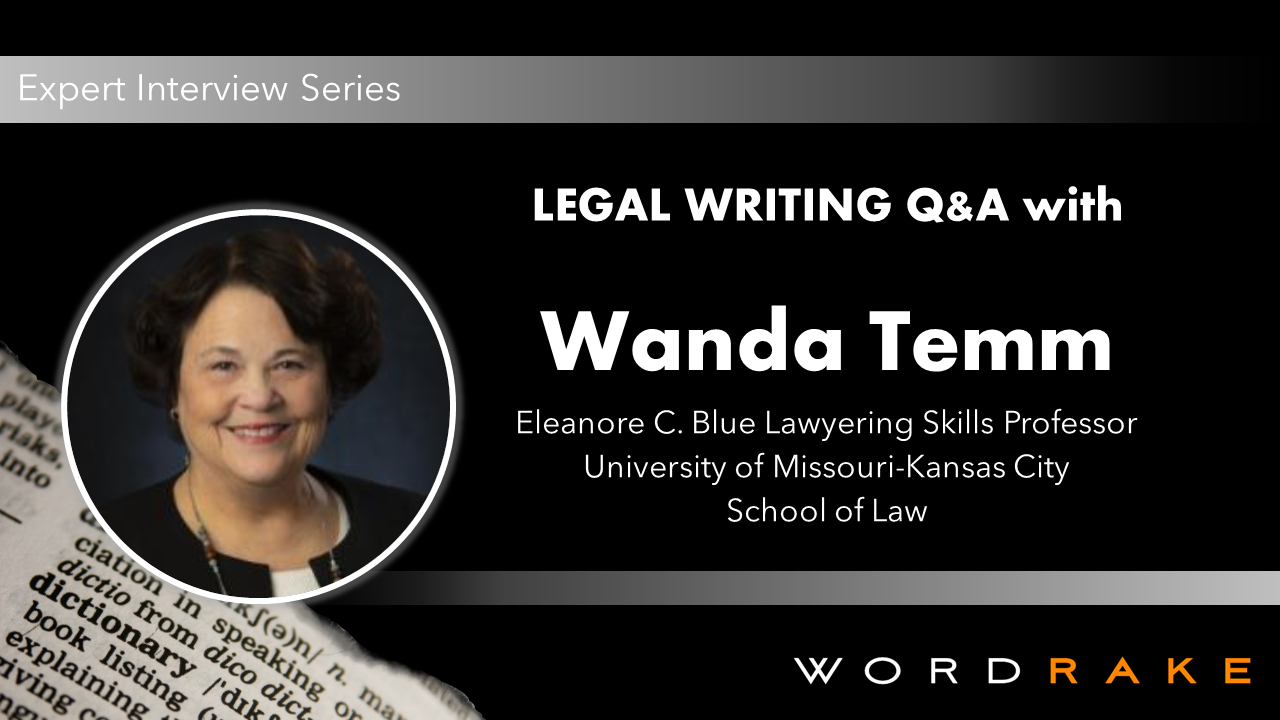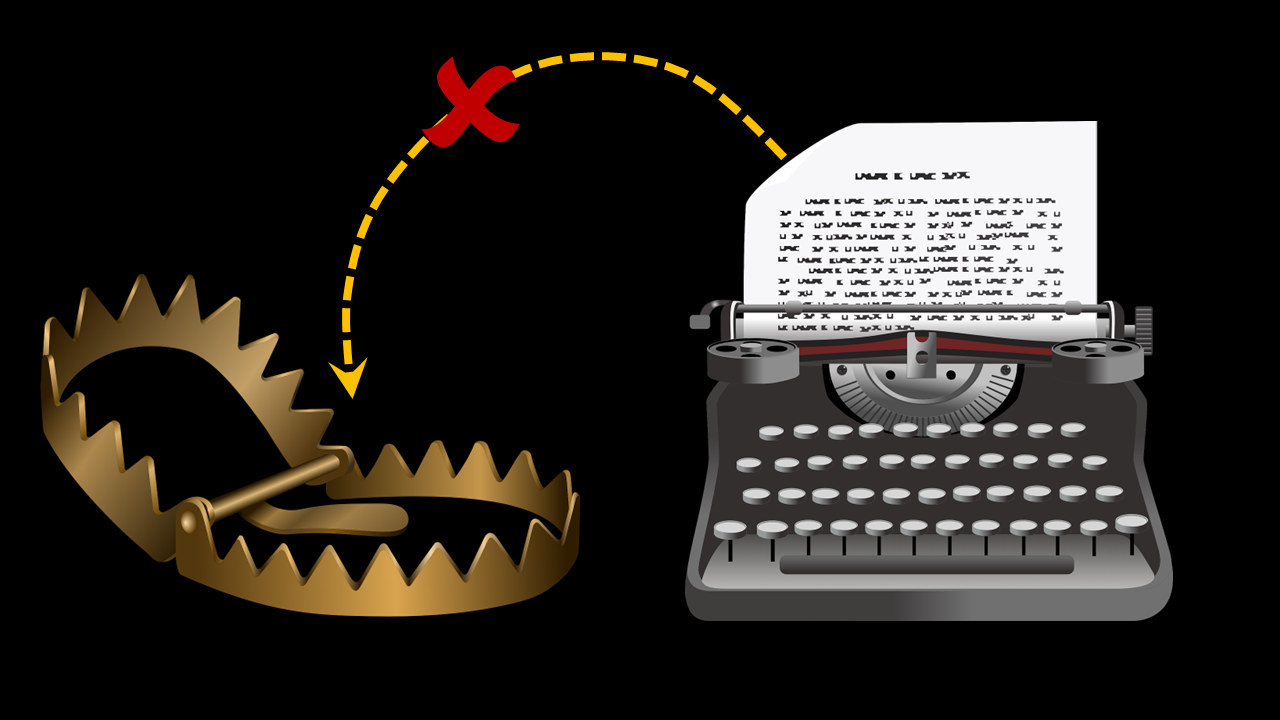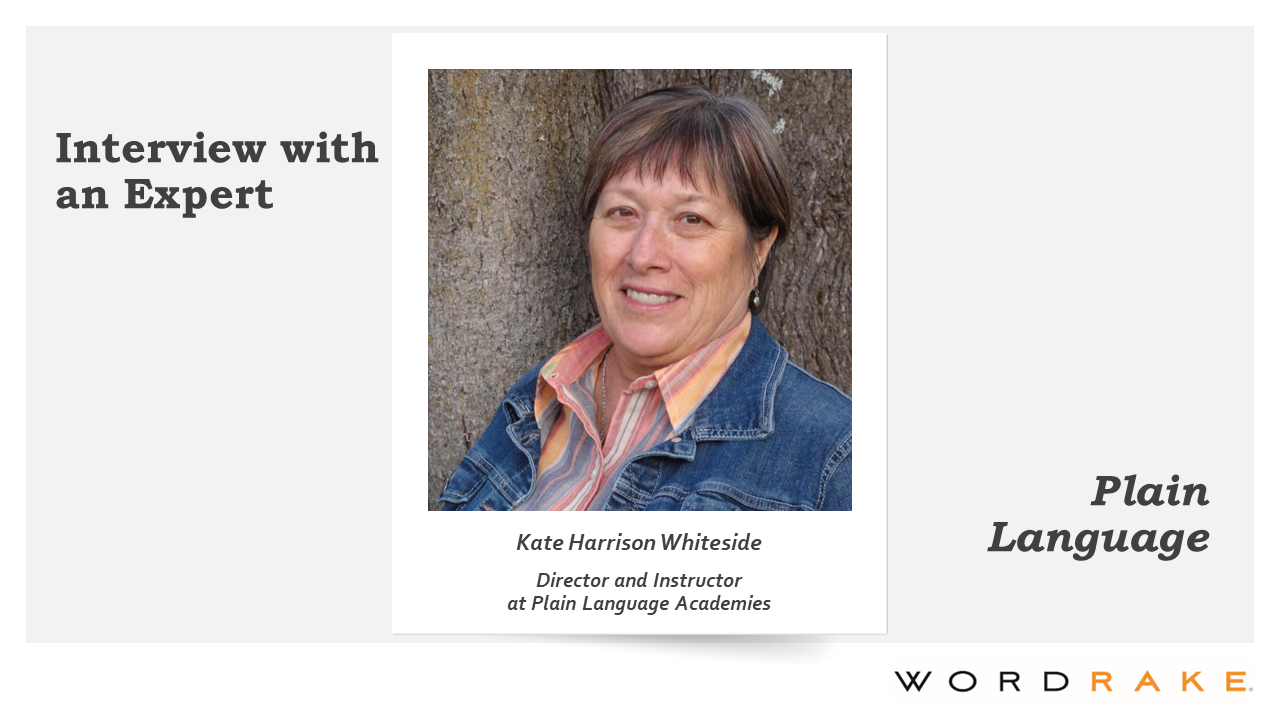Some people are born to teach, and Professor Wanda Temm is one of them. Ever since she was a child, Professor Temm has been passionate about learning and teaching. Legal writing is a complex topic, but Professor Temm’s confidence that her students can learn to write well makes her the perfect person to ask how lawyers can learn to write.
Continue readingBefore the first day of your 1L year, you probably spent 30 minutes reading one page of a 17th century case (and dreaded having to read nine more before class). If you were anything like me, you sighed and consulted Black’s Law Dictionary to decipher the terminology combined in doublets and triplets—and were often disappointed to find the words were near-synonyms or out of use. You rightly identified these terms as archaic and redundant. But by the end of your 3L year, you were unfazed by the English, French, and Latin terms mixed within dense blocks of text. You could even understand what you read and use it to argue for classroom clients! You were ready to enter the profession, thinking and writing like a lawyer.
Continue readingWe talk about plain language a lot here at WordRake, and for good reason. Our software is specifically designed to make it easier to follow plain language laws. But what are plain language laws exactly? The nation’s leading expert, Professor Michael Blasie, agreed to give us a crash course in this important legislation.
Continue reading“How hungry is my reader?” When we sit down to write a web page, report, proposal, or blog post, we’re often plagued by uncertainty about our readers’ appetite for our content. Am I writing for a headline-only grazer? An executive summary diner? A footnotes-and-all chowhound? One size cannot fit all because readers differ in their appetite for detail. What’s a writer to do?
Continue readingWhen you see several potential verbs in a short sentence, but only one of them ends with -ing—and it isn’t driving the action—your sentence may have fallen into the Gerund Trap. If the -ing word represents an abstract idea and it’s the first word in a sentence or independent clause, then you’re almost certainly in the Gerund Trap. You may be surprised to learn that your -ing word isn’t functioning as a verb at all: it’s a noun! (By definition, a gerund is a verb in its -ing form that functions as a noun.)
Continue readingOne misconception about editing is that it’s simply a function of time—that if given the same document and the same block of time, everybody would spot the same edits. That’s not true. Effective editors train themselves to spot specific edits. That is, they go into every editorial session knowing how wordiness usually arises and how to fix it. With practice and experience, those fixes become editorial reflexes.
Continue readingChoosing the right pronoun to use when writing is harder than you might expect. Some pronouns serve several functions; some pronouns don’t change to show number or gender, and others seem redundant. There’s also social pressure to sound “sophisticated.” It’s no wonder writers are confused! Let's explore the proper usage of reflexive pronouns and first-person pronouns.
Continue readingPart 3 - Either annoying or disrespectful
We all have phrases and words that just rub us the wrong way. Those show up in the office a lot. Whether it’s because one specific person abuses the phrase, or because the phrase itself is problematic, some business clichés make us want to lash out in anger and frustration. To wrap up our series of 24 clichés to leave behind in 2024, here are 8 more office clichés that need to go away forever.
Continue readingEvery year WordRake celebrates International Plain Language Day by talking to experts and sharing some of their wisdom on our blog. Today we’re interviewing plain language expert and instructor Kate Harrison Whiteside, one of the fantastic founders of the holiday, about her passion for clear communication.
What is your role and how is it connected to plain language?
I currently wear several hats, and as a hat lover I am happy wearing them all. I am Director of and an instructor with the PlainLanguageAcademies.com. It’s been very exciting to grow with our online training platform to include French and Spanish academies, courses by South African plain language specialists and our students from around the globe.
Continue readingPart 2 - Dishonesty
Business jargon is often used to hide something, whether it’s an outright lie or a little misdirection. The easiest way to spot this is to ask whether the information being offered by the cliché was needed. This is one of my go-to communication rules: if you’re feeling the need to offer descriptions no one has asked for, you’re probably not being honest. To quote a response to a denial in NBC’s The Good Place, “Okay, that’s really specific, and that makes me think you definitely did do that.” Or to quote Shakespeare’s Hamlet, “The lady doth protest too much, methinks.” If you think “I should say X so I don’t sound like Y,” examine why you think your statement will sound that way to begin with. Then change your words to be more precise, or else don’t say anything at all.
Continue reading













